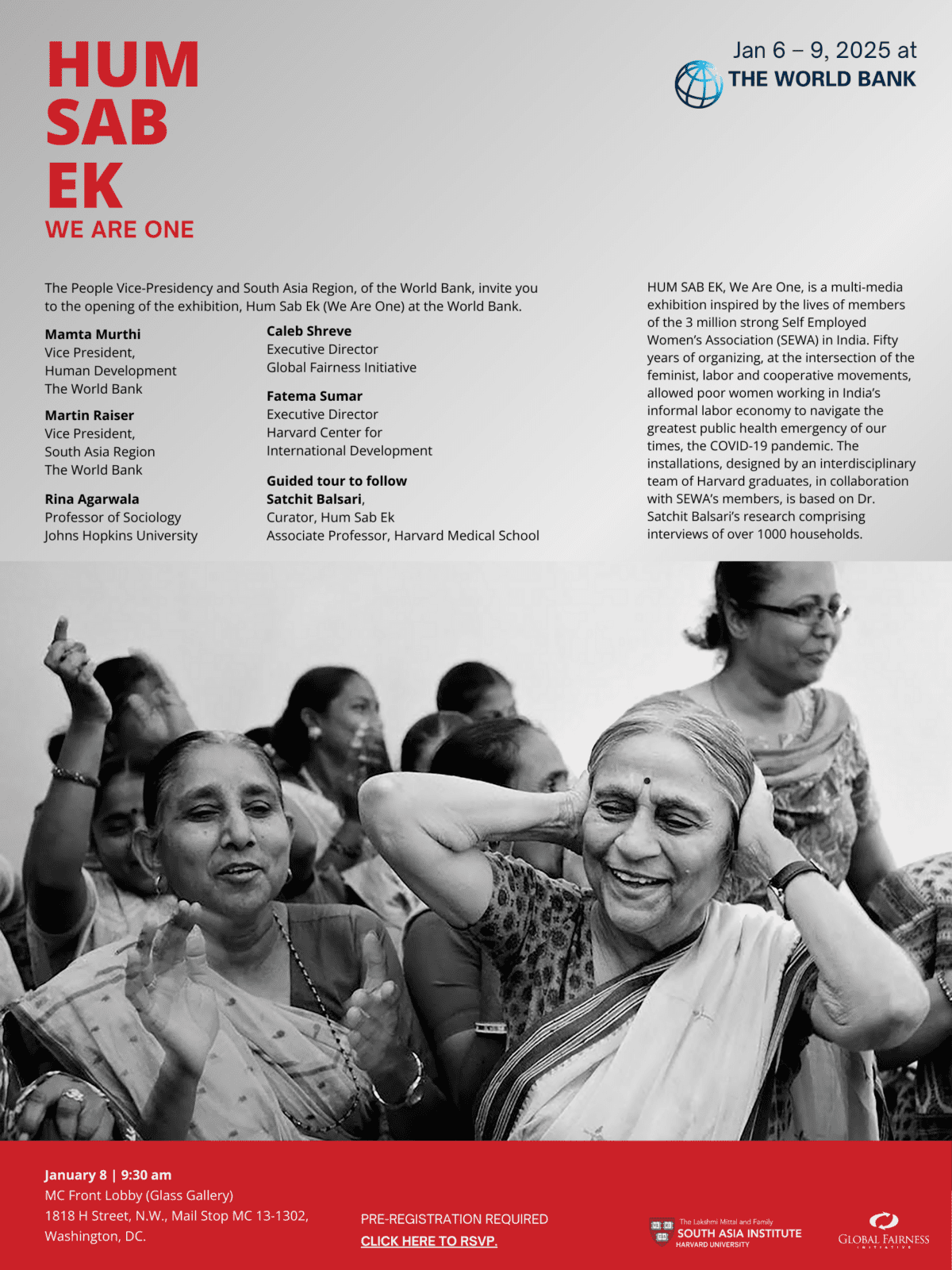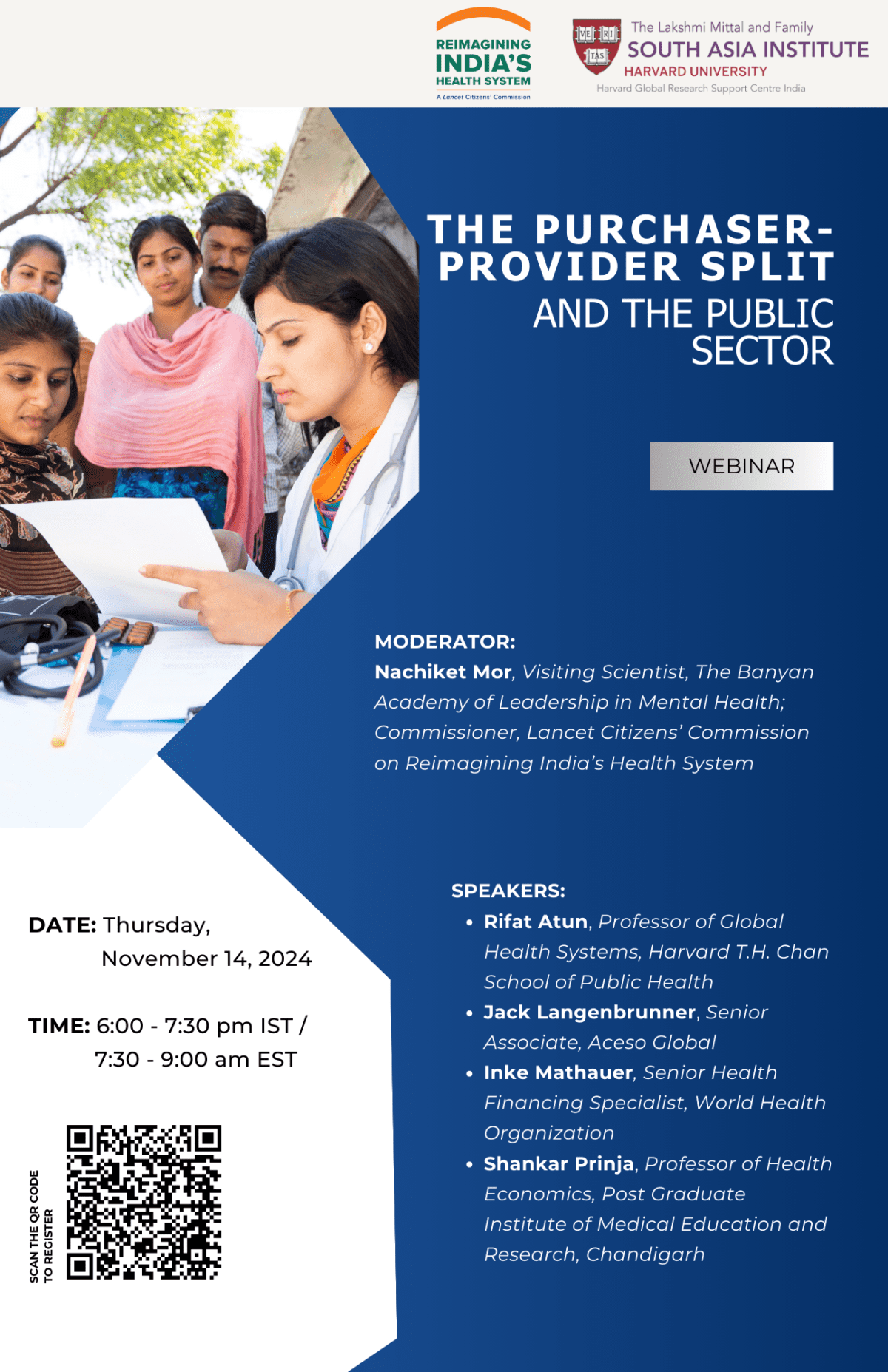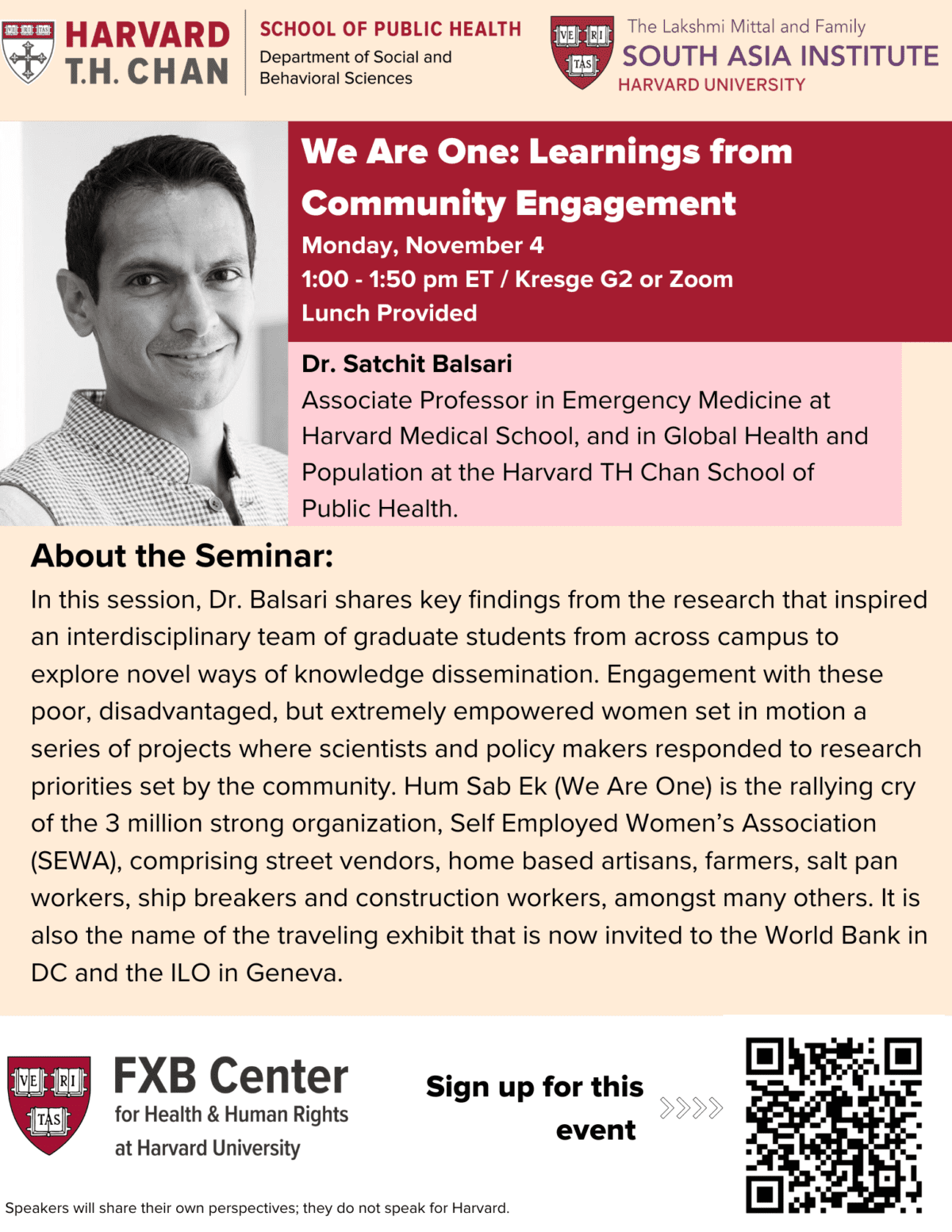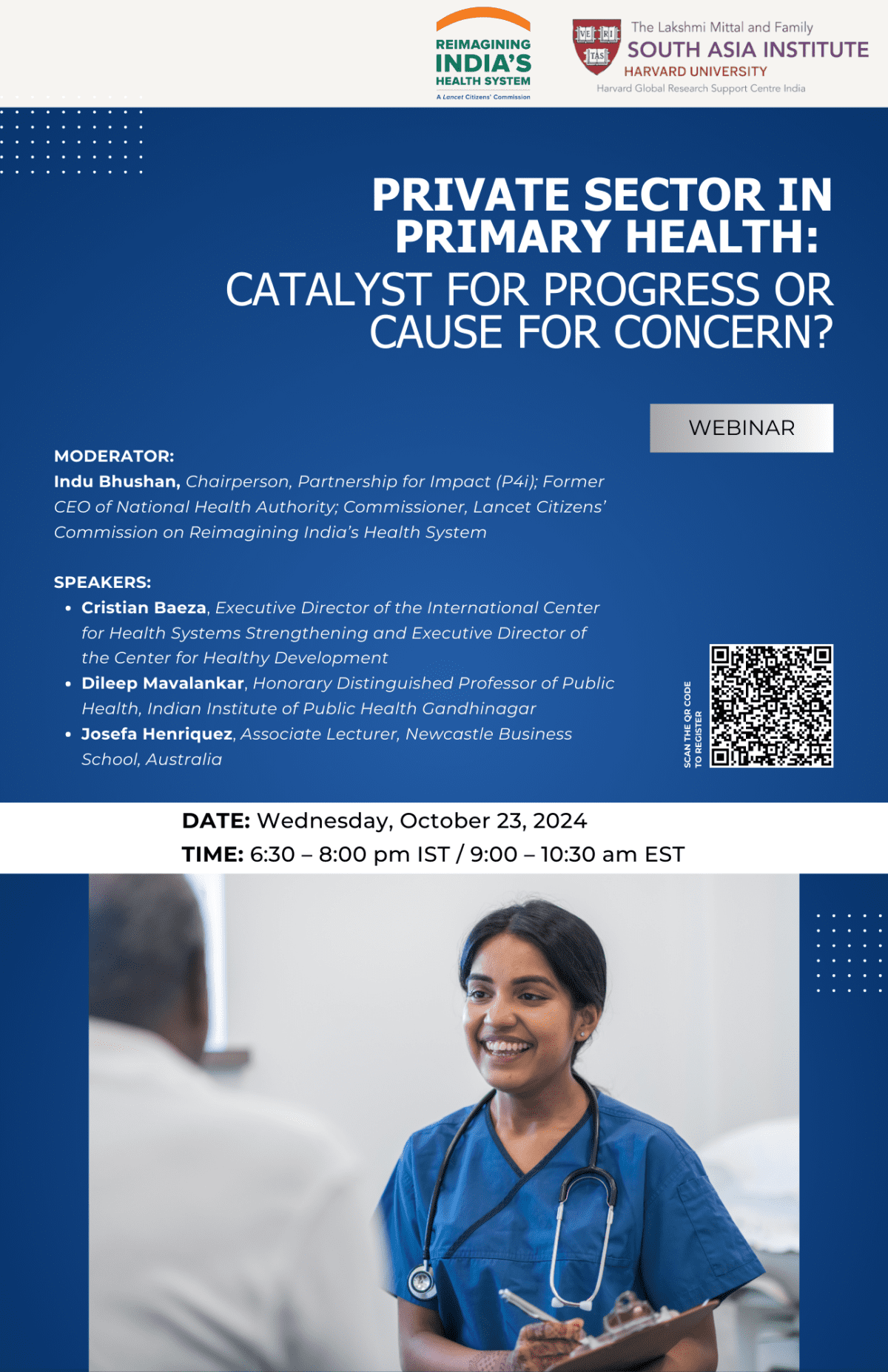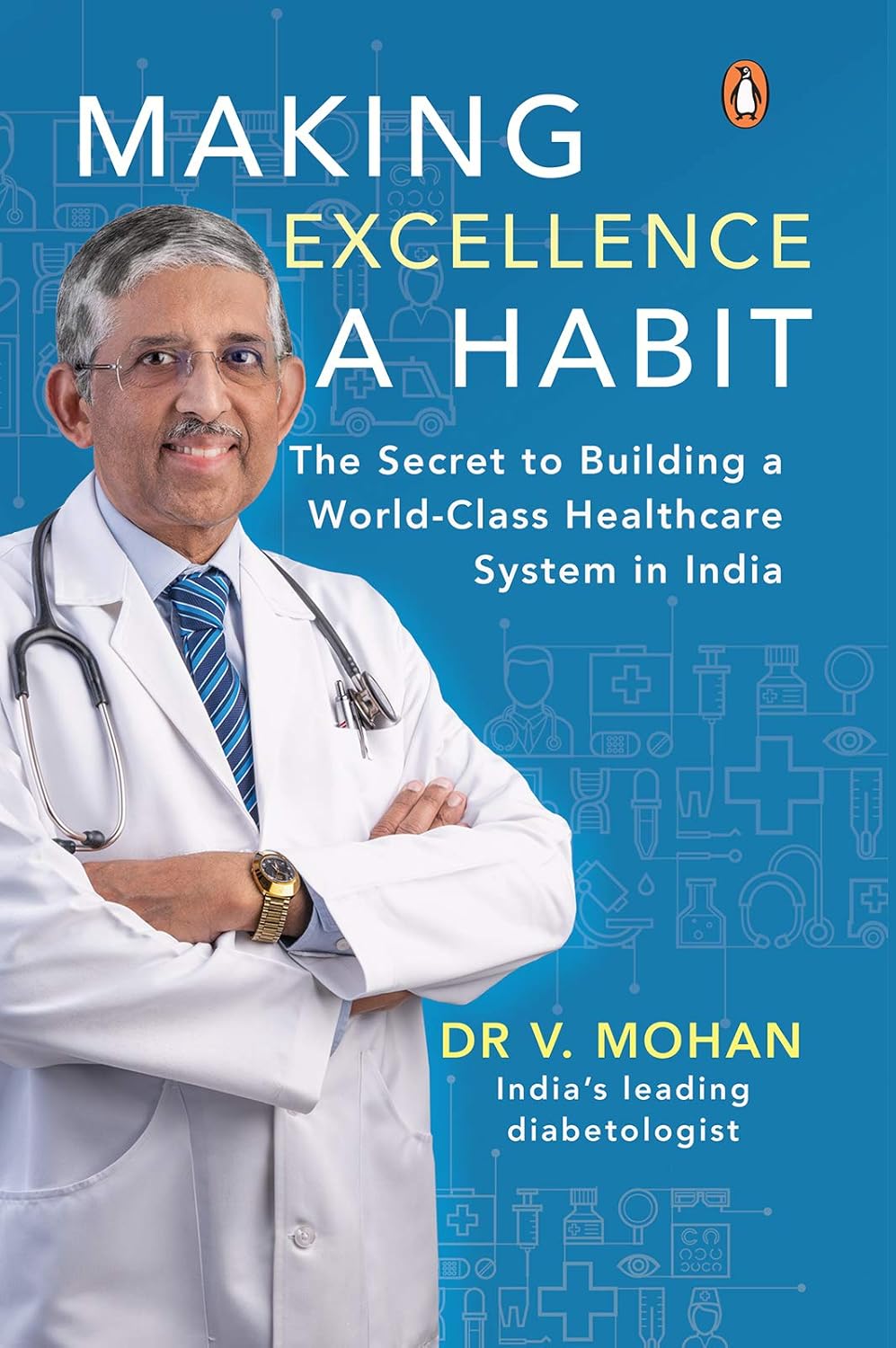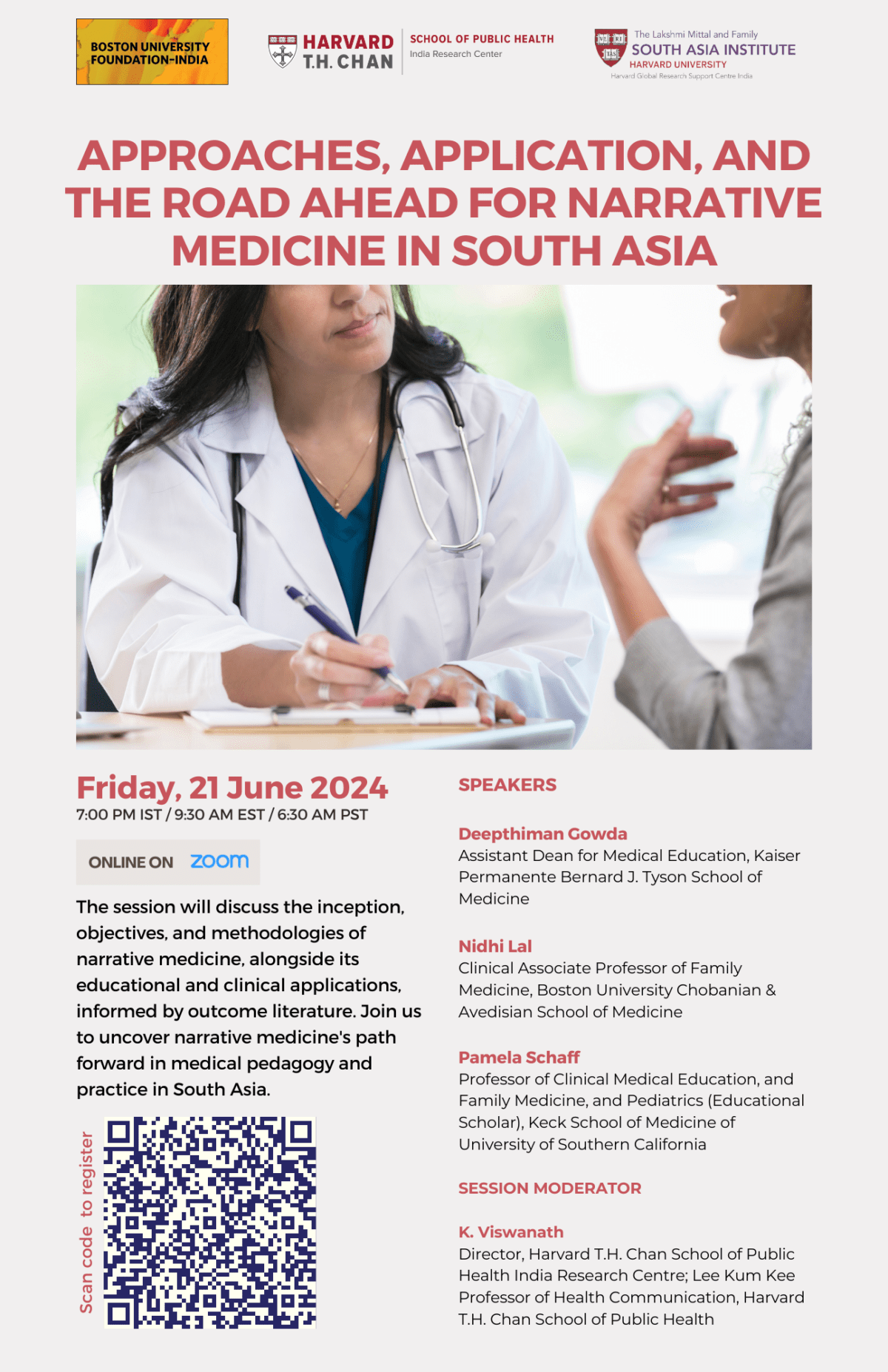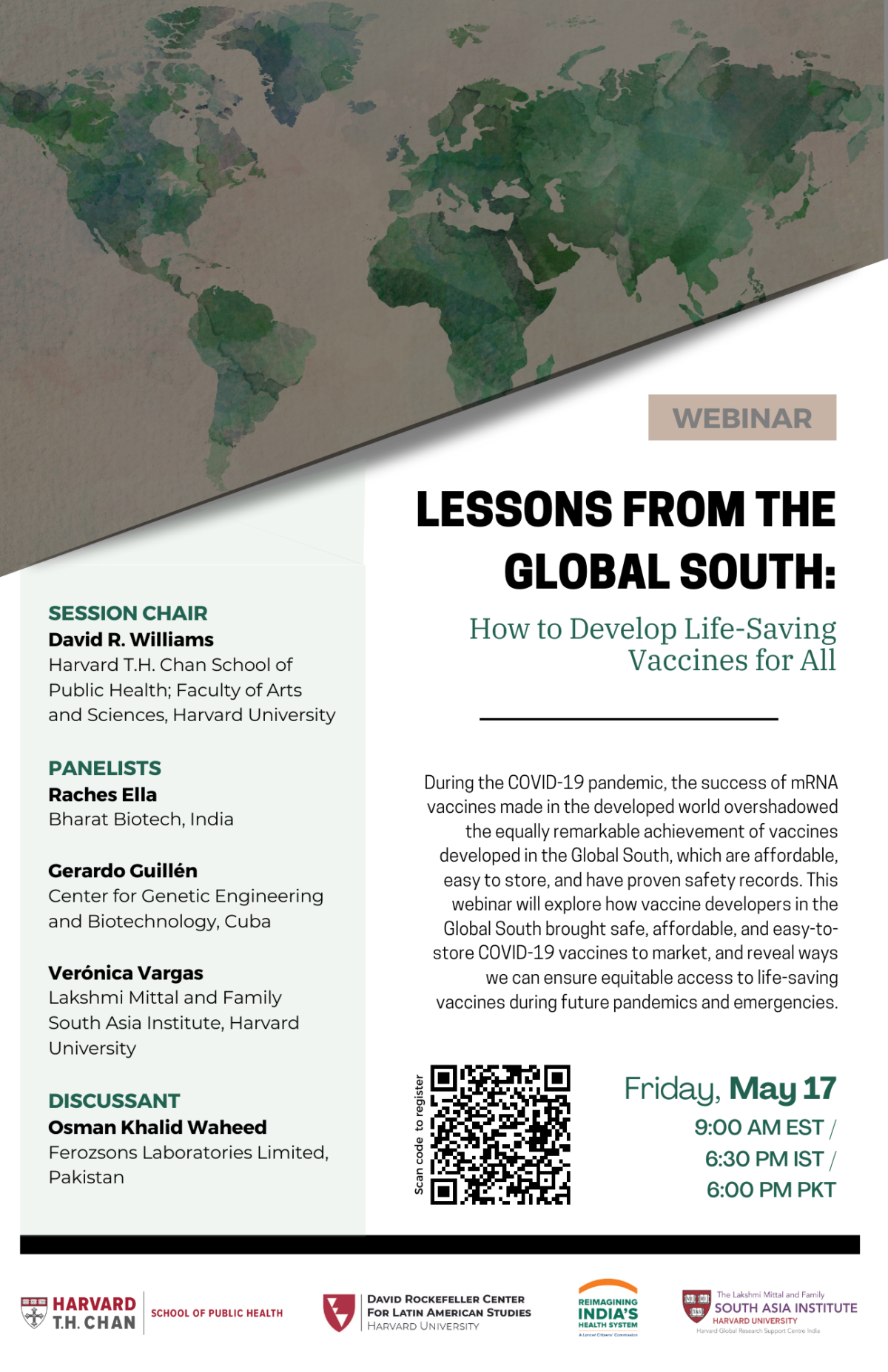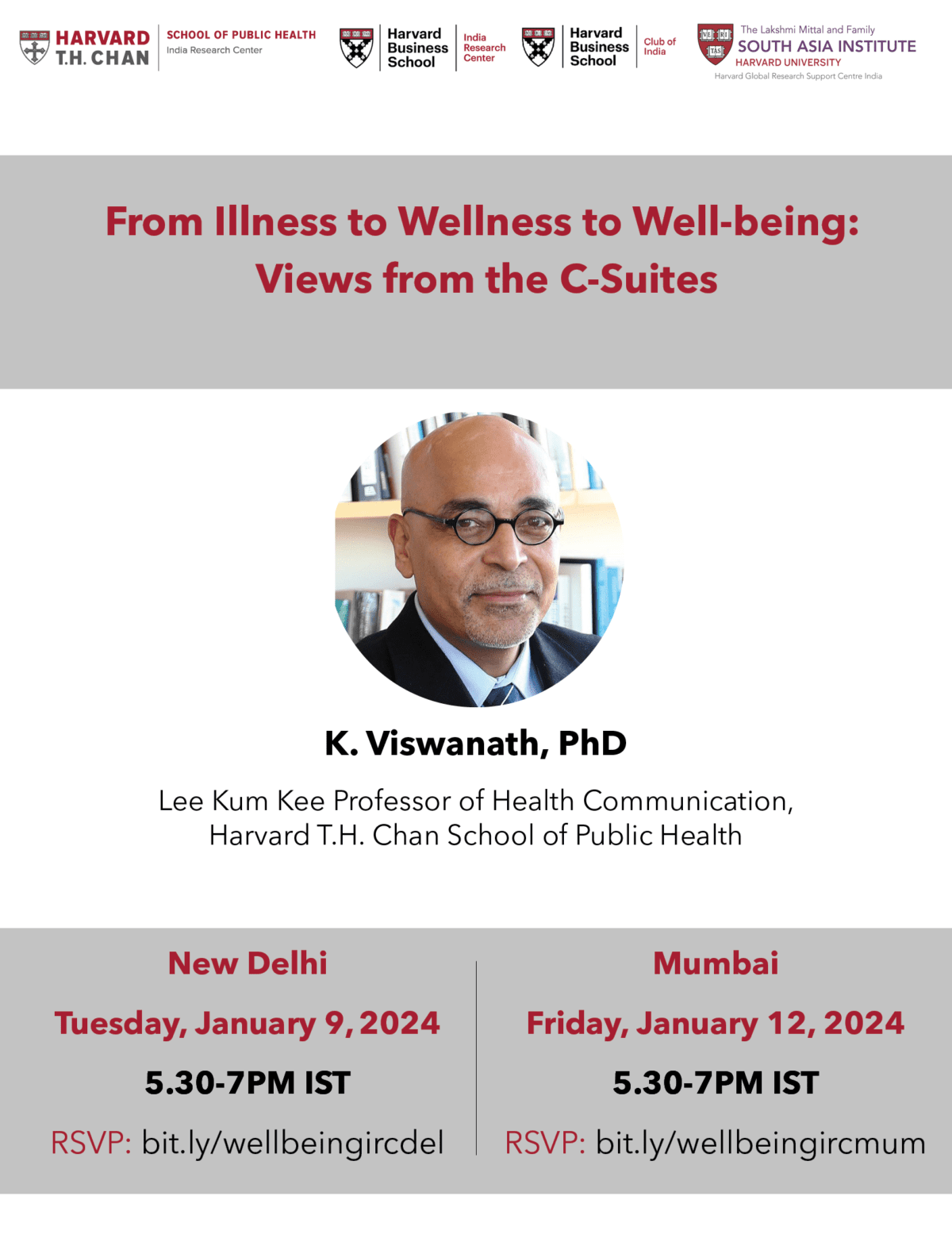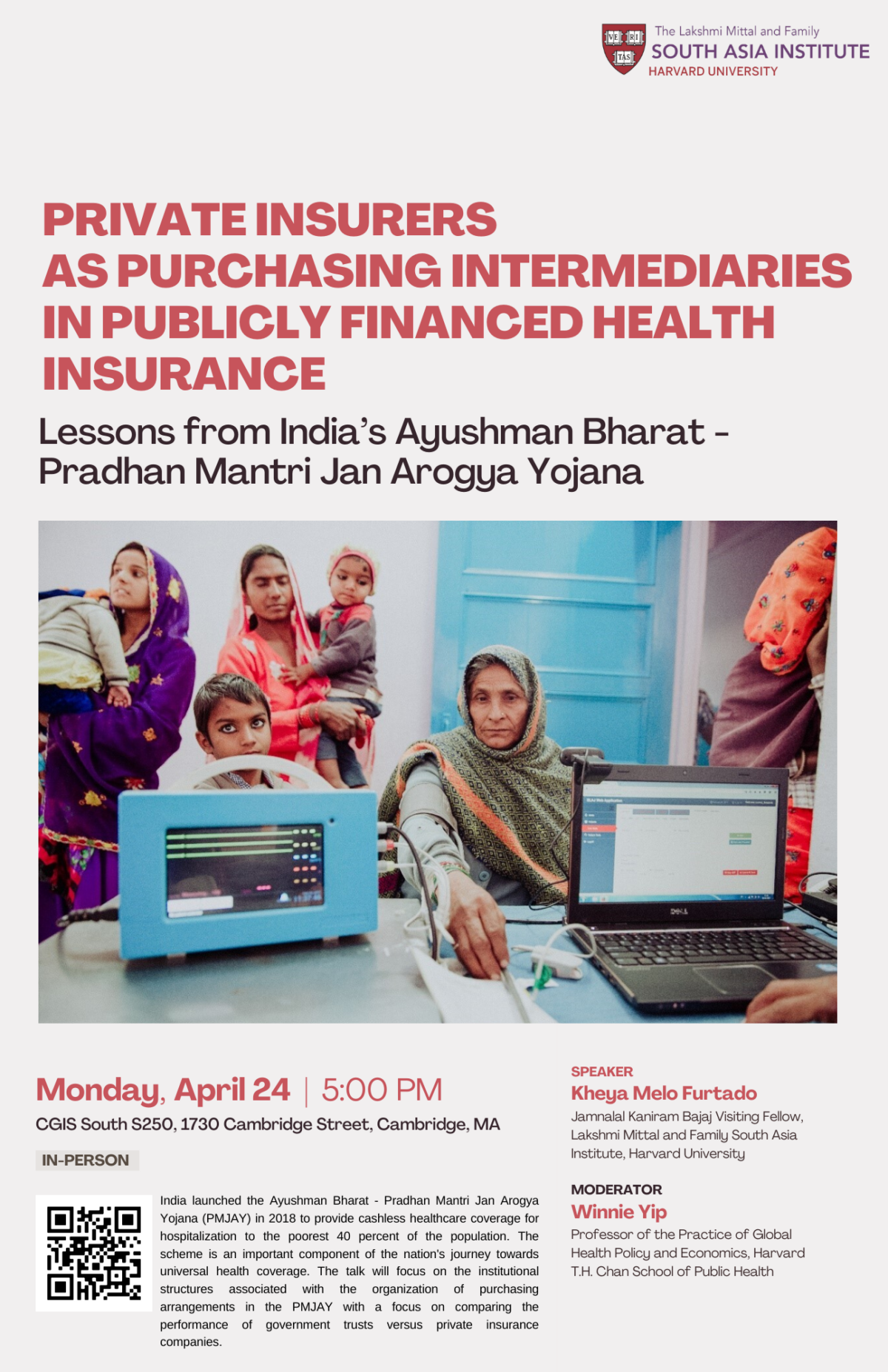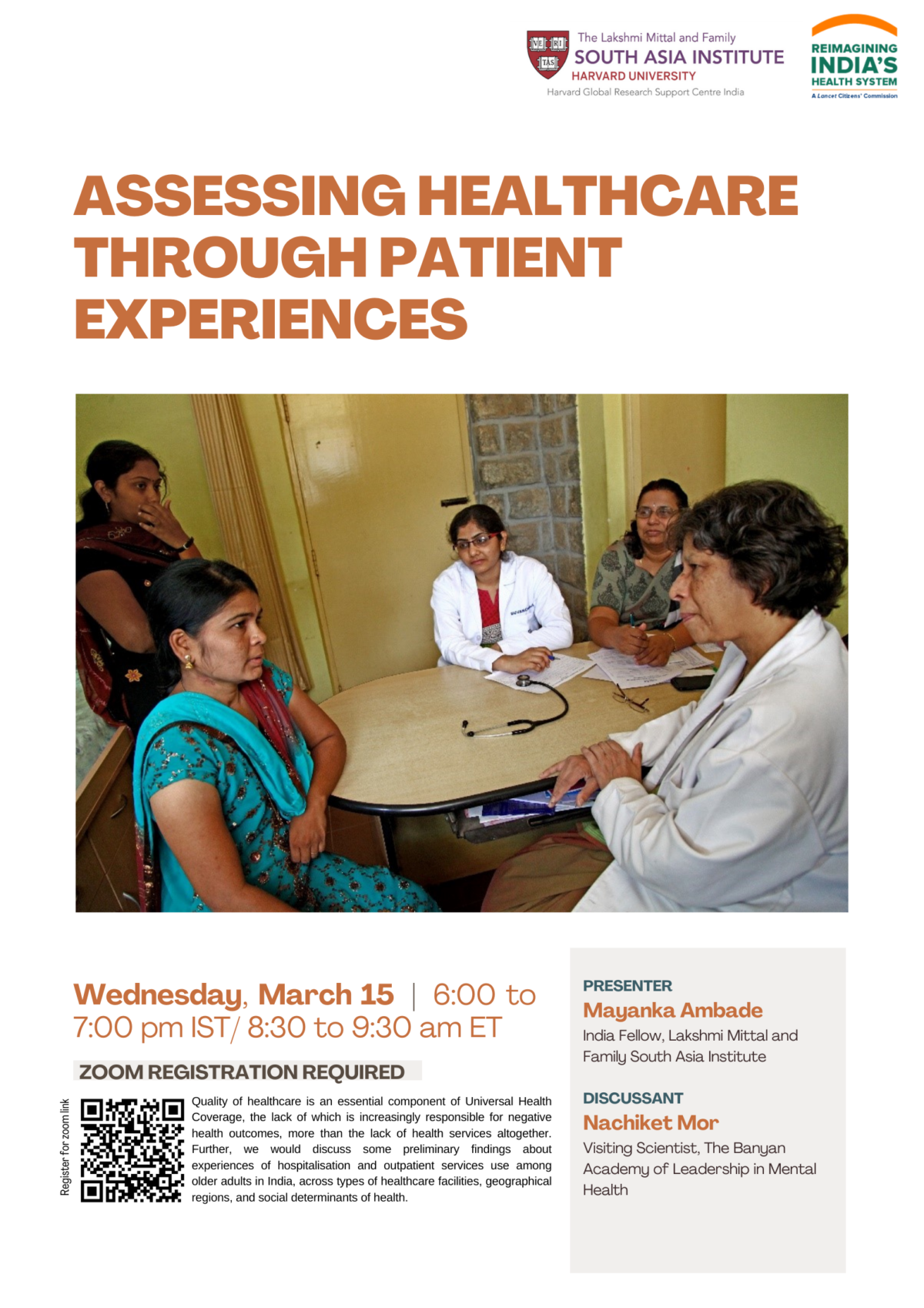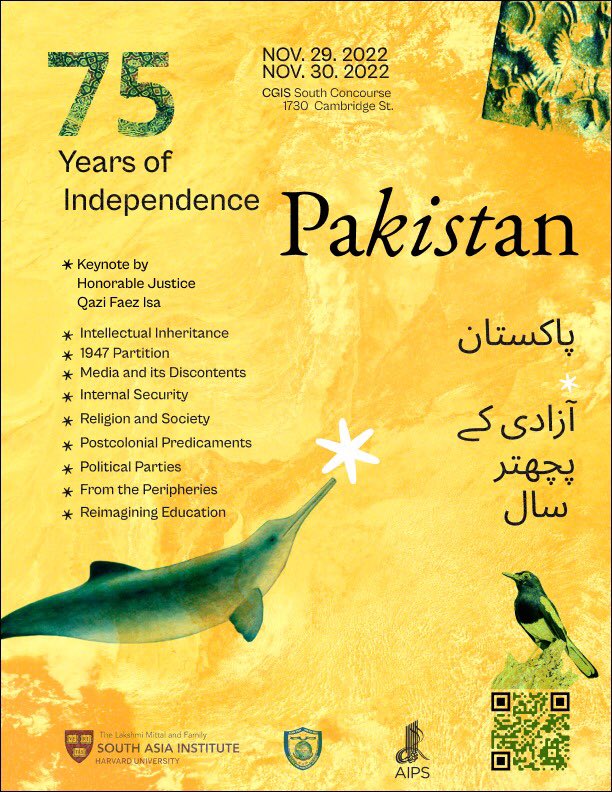WHEN
Wed, Jan 8, 2025 at 09:00am, ET
The traveling exhibition, HUM SAB EK (We Are One), co-sponsored by the Mittal Institute, stops at The World Bank in Washington, DC, from January 6–9, 2025. On January 8 at 9:30 am, please join us for an opening panel discussion and guided tour. RSVP is required.
More InfoWHEN
Thu, Nov 14, 2024 from 06:00pm — 07:30pm, IST
Join us for a webinar on “The Purchaser-Provider Split and the Public Sector” organised jointly by The Lakshmi Mittal and Family South Asia Institute at Harvard University and Lancet Citizens’ Commission on Reimagining India’s Health System.
More InfoWHEN
Wed, Oct 23, 2024 from 06:30pm — 08:00pm, IST
Join us for a webinar on “Private Sector in Primary Health: Catalyst for Progress or Cause for Concern?” organised jointly by The Lakshmi Mittal and Family South Asia Institute at Harvard University and Lancet Citizens’ Commission on Reimagining India’s Health System.
More InfoWHEN
Fri, Sep 27, 2024 from 11:30am — 12:15pm, ET
VENUE
Hybrid – 641 Huntington Avenue, Boston, and online via Zoom
Join the Department of Global Health and Social Medicine, Blavatnik Institute, Harvard Medical School, for a discussion by Dr. V. Mohan on his book “Making Excellence A Habit: The Secret to Building a World-Class Healthcare System in India.”
More InfoWHEN
Fri, Jun 21, 2024 from 07:00pm — 08:30pm, IST
Join us to uncover narrative medicine’s transformative potential and chart a compassionate path forward in medical pedagogy and practice in South Asia.
More InfoWHEN
Fri, May 17, 2024 from 09:00am — 11:00am, ET
Join us for a webinar on Lessons from the Global South: How to Develop Life-Saving Vaccines for All.
More InfoWHEN
Wed, Feb 28, 2024 from 12:00pm — 01:00pm, ET
VENUE
Room 106/107 at 641 Huntington Avenue, Boston MA 02115 and online via Zoom
Join us to learn how a medical university in the most remote village of Nepal sets an example for the world and how resource-limited institutes like KAHS collaborate with Harvard Medical School for advancing evidence and innovation in Global Health.
More InfoWHEN
Mon, Apr 24, 2023 at 05:00pm, ET
VENUE
CGIS South S250, 1730 Cambridge ST
India launched the Ayushman Bharat – Pradhan Mantri Jan Arogya Yojana (PMJAY) in 2018 to provide cashless healthcare coverage for hospitalization to the poorest 40 percent of the population. The scheme forms an important component of the country’s journey towards universal health coverage. In this presentation, the institutional structures associated with the organization of purchasing arrangements in the PMJAY will be examined, with a focus on comparing the performance of government trusts versus private insurance companies[…]
More InfoWHEN
Wed, Nov 30, 2022 at 09:00am, ET
COST The event is free and open to all.
VENUE
CGIS South Concourse, 1730 Cambridge Street, Cambridge, MA
This conference aims to bring a focused, though not exclusionary, lens to the study of the country, where in a regional context, Pakistan is overshadowed by its much larger neighbor.
More Info